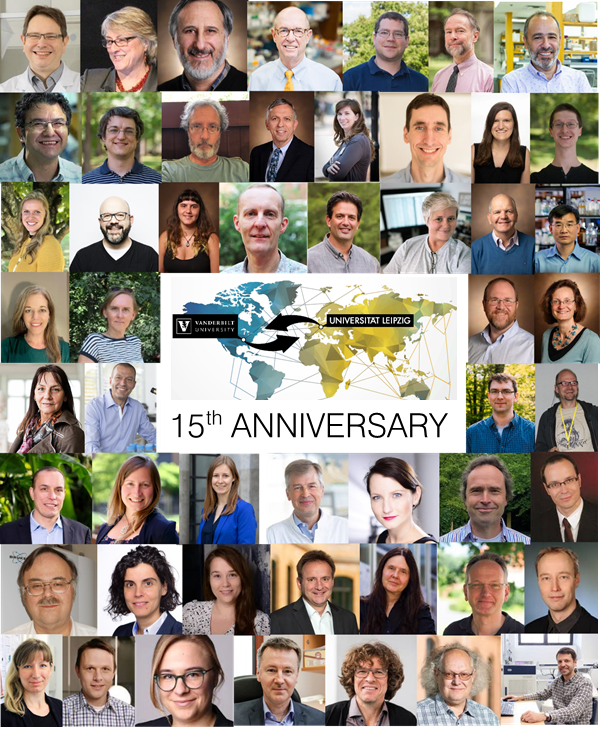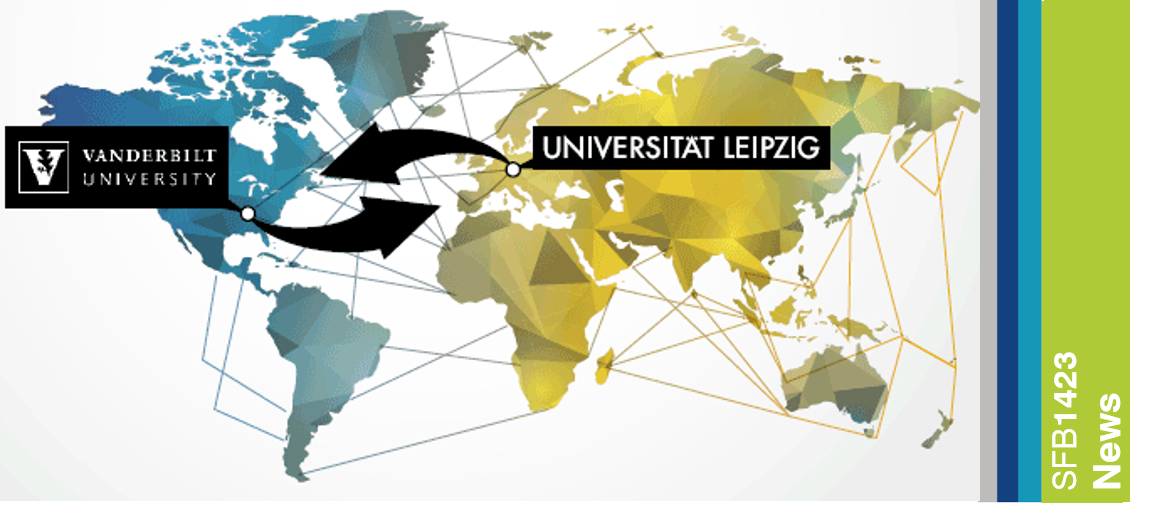In 2009 the heads of both universities signed a „Memorandum of Understanding“ (MOU), extended 2013 and 2018 that remain in force until 2028. The MOU allows and encourages academic exchanges between both universities; facilitate joint research programs, student programs, and a cultural exchange program. This MOU will be the basis for the aimed cooperation of the participating faculty and a prerequisite for many extramural funding applications. Furthermore, it shall develop, strengthen and broaden the cooperation between both institutions in the long-term view.
Complementary methods and expertise
Leipzig and Vanderbilt distinguish the complementary methods and expertise of the two locations. Examples include NMR and EPR spectroscopy, HTS, G-protein and arrestin expertise and computational biology, all of which are represented at an excellent level at Vanderbilt University. In contrast, Leipzig University has a very strong profile in GPCR biology and biochemistry, peptide synthesis, X-ray crystallography, solid-state NMR and molecular dynamics simulations. This perfect orthogonality between our locations is the basis for excellent international support for young scientists. Excellent young scientists such as Prof. Dr. Clara T. Schoeder, Dr. Georg Künze and Dr. Matthias Elgeti have been appointed to Leipzig University.
In the recently successfully acquired or extended Collaborative Research Centres 1423 (Prof. Dr. Beck-Sickinger), SFB1052 (Prof. Dr. Blüher) and TRR386 HYP*MOL (Prof. Dr. Matysik), this network was always emphasized as a unique selling point and explicitly praised in the reviews for innovative internationalization. Corresponding participation in the proposed SFB1649 (Prof. Dr. Belder) and in the LEICEM (LEIpzig CEentre of Metabolism) excellence initiative has taken place and further activities are planned.
Over 40 scientists involved
The exchange program is not only aimed at qualification, it creates significantly new research questions and results, which in turn lead to publications and new, joint research proposals. It was not least this partnership and strong /excellent network that led to Leipzig University being awarded with the Alexander von Humboldt Prize for Jens Meiler. Since 2020 the AI competence of LU and related areas could be expanded even further. In 2022, the ScaDS.AI Dresden/Leipzig – one of the five AI competence centers in Germany – have been permanent established in Leipzig as part of the federal government’s national strategy for artificial intelligence. Leipzig University and partners is planning to establish an AI Data Centre for Leipzig in 2026, which provides 1.000 m² of usable space for server infrastructures and IT capacity of at least 3 megawatts (MW).
More than 200 exchanges
Since 2014 the Max Kade Foundation (MKF, www.maxkadefoundation.org) supports the student exchange program. They provide funds of up to three undergraduate and graduate students from each university to conduct a ten week research stay, and up to two faculty members (post-doctoral fellows, professors) to conduct a scientific course at the respective partner university. Since 2009 more than 200 research stays have taken part: 61 students, 46 graduate students, 22 post-doctoral fellows, 78 group leaders and professors took the opportunity to conduct part of their research projects or to teach at the respective partner university.
More than 60 seminars
Second import part of this partnership includes the science transfer. Until now five International Scientific Workshops, 63 scientific courses, incl. 27 modules of minimum 1 week duration took place.
More than 90 joint publications
The Outcomes of all the actions are published in more than 90 articles with minimum one author each from Leipzig and Vanderbilt.
Raised more than 7 Mio EUR competitive research grants
This long-lasting collaboration leads to additional third party fundings on both sides. In addition to individual project funding and micro-grants funded by the NIH/NSF or DAAD, the existing Vanderbilt cooperation at Leipzig University has enabled several interdisciplinary collaborative projects to be acquired, such as two junior research groups funded by the BMBF/ESF, the SFB1052 and, most recently, the SFB1423, each with a funding volume of over EUR 10 million by the DFG. Further extramural funding grants are in the pipeline.
Last but not least, both universities could strengthen their research profile in these areas based on the Leipzig Vanderbilt Connection. Within this intensive supportive research infrastructure, it was possible to initiate contacts and joint research which leads to this presence cooperation in the participating institutes, with its continuous and well-known exchange program and guest lectures, and courses – even during the global pandemic. All together forms the basis for this lively and intensive scientific exchange in research and teaching.


